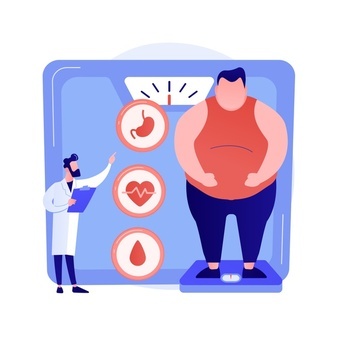Senior Consultant for supporting Elimination of Mother-to-child transmission of HIV (EMTCT) data survey, Phase 2, Kigali, 3 months


UNICEF works in some of the world’s toughest places, to reach the world’s most disadvantaged children. To save their lives. To defend their rights. To help them fulfill their potential.
Across 190 countries and territories, we work for every child, everywhere, every day, to build a better world for everyone.
And we never give up.
For every child, Health
How can you make a difference?
Purpose of Activity/Assignment: Provide technical assistance to conduct a field data collection and analysis to estimate the rates of HIV seroconversion among pregnant and breastfeeding mothers in Rwanda
Justification and Rationale
Mother-to-child transmission (MTCT) of HIV is a significant contributor to the HIV pandemic, accounting for 9% of new infections globally. MTCT of HIV occurs when HIV is transmitted from a woman living with HIV to her baby during pregnancy, labour or delivery, or after delivery through breastfeeding. Without treatment, approximately 15–30% of infants born to HIV-positive women will become infected with HIV during gestation and delivery, with a further 5–15% becoming infected through breastfeeding. HIV infection of infants results in early mortality for many or creates a lifelong chronic condition that greatly shortens life expectancy and contributes to substantial human, social and economic costs.
Dual elimination of Mother to child transmission of HIV and Syphilis serves to improve a broad range of maternal and child health (MCH) services and outcomes. This achievement directly contributes to Sustainable Development Goals (SDGs) 3, 5 and 10 and to first billion of more people benefitting from universal health coverage of WHO GPW-13 which both aspire to ensure health and well-being for all, achieve gender equality and empower women and girls, and reduce inequalities in access to services and commodities.
The global community has committed to eliminating mother-to-child transmission (EMTCT) of HIV and syphilis as a public health priority. International and regional goals have been set, and countries are scaling up programmes towards EMTCT of HIV and syphilis. The processes and criteria to validate EMTCT of HIV and/or syphilis has been defined by WHO and partners to guide countries to apply a standard approach across a wide range of epidemiological and programmatic contexts.
In Rwanda, the UNAIDS estimates a mother to child HIV transmission of 6% which is much higher that the estimate from the program of 1.5%. The discrepancy may be mainly due lack of Rwanda specific data regarding mothers who drop off the program and those who get infected during pregnancy or breastfeeding period respectively, affecting the quality of estimates
Thus, the EMTCT national steering committee has recommended to conduct a deep study to estimate the HIV transmission rates among pregnant who receive ART services to reduce the MTCT, those who dropped out of the service, provide the size estimates for women with unmet need for PMTCT. Further, it is recommended to estimate the seroconversion among the pregnant and breastfeeding women as well as the vertical transmission from those mothers. These data will feed into the 2021 Rwanda HIV spectrum estimates
Rwanda Biomedical Centre with technical and financial support from UNICEF has developed a scientific survey protocol and necessary tools guide field implementation. The summary of objectives and expected outcomes are summarized in table below
Scope Of Work
Title : HIV seroconversion rate among pregnant and breastfeeding mothers and related vertical transmission rate in Rwanda
Objectives : We aim to estimate the seroconversion rate among pregnant women and lactating mothers and to measure the vertical transmission rate from the newly infected mothers.
Specific Objectives
- Estimate the HIV incidence during pregnancy and breastfeeding period and related risk factors.
- Characterize the most at-risk mothers for the HIV incidence during pregnancy and breastfeeding period.
- Estimate the vertical transmission from the sero-converted mothers during pregnancy and breastfeeding period.
Design and setting
The Study Will Be Subdivided Into Two Arms
- Arm 1: retrospectively follow up of children born to mothers who were newly diagnosed with HIV during labor from July 2016 to October 2021 while they were HIV negative at any of the ANC visits.
- Arm 2: consists of a mixture of cross-sectional and prospective cohort study designs of mothers tested HIV negative
Population: The study will include mother and child pair for all mothers aged 15 years and above who consent to participate in the study and get further HIV testing as well as their children. Those mothers include: (i) pregnant and tested HIV negative at the first antenatal care visit, (ii) mothers confirmed HIV negative at delivery and followed up during the course of the study.
Study Outcome: (i) HIV Incidence among pregnant women, (ii) HIV Incidence among lactating women, (iii) Mother to child transmission rate among sero-converted mothers during antenatal care, (iv) Mother to child transmission rate among sero-converted mothers during breastfeeding period.
Study Sites: The study sites will be the health facilities offering the full package of PMTCT (antenatal care, maternity and exposed infant follow-up)
Sample Size
- Arm 1: 1000 mothers tested HIV positive at delivery but were tested negative at first antenatal care visit from July 2017 to June 2020
- Arm 2: 247,000 mothers who came for children vaccination at each vaccination point (6 weeks, 9 months and 15 months)
Study Implementation Timeline
- Arm 1: 3 months
- Arm 2: 12 months
Purpose of Consultancy
UNICEF seeks to hire consultancy services to provide technical assistance to Rwanda Biomedical Centre to implement Arm 1 of the study protocol. Consultancy services are specifically required to collect field data, conduct data analytics and write a report in strict accordance with the survey protocol as approved by the Rwanda National Ethics Committee
Specific Outputs And Tasks Will Include The Following
Task 1.1: Study in detail the survey protocol and associated tools and draft an implementation plan
Task1.2: Convene the EMTCT- TWG to present the inception report, implementation plan and associated budget
Task 1.3: Collect field data and conduct scientific analyses in strict accordance with the survey protocol as approved by Rwanda National Ethics Committee
Task 1.4: Coordinate the data collection field work and workshops with the health care providers
Task 1.5: Submit and present a draft comprehensive scientific report to PMTCT – TWG for technical review and validation
Task 1.6: Submit a final report in narrative and PowerPoint formats.
Work Relationships
The consultant will work under the leadership of UNICEF HIV/AIDS Manager in close collaboration with the HIV Division Manager at RBC/MOH and other relevant partners including WHO, UNAIDS, PEPFAR
Specific Activities And Deliverables
- Protocols and tools studied in detail
- Work plan and associated budget developed
- PMTCT TWG convened to review workplan
- Inception report & Work Plan
- Data collectors trained and well-coordinated
- Field data collected as per protocol
- Data base designed and in well organised format
- Interim data analysis is completed, draft report submitted
- PMTCT TWG is convened to present data and draft report
- Well organised Database
- Draft analytical report
- Final narrative and power-point reports prepared and submitted to UNICEF and RBC
- Full data base handed over to RBC
- Final report
To qualify as an advocate for every child you will have…
- Education:
Advanced degree (Master) in public health, medicine, epidemiology, biostatics, social and allied sciences
Work Experience
- Relevant work experience: a minimum of 8 years’ experience in the Rwanda national HIV programme and public health sector in general.
- Competencies: The individual must have ability and deep understanding of the PMTCT programme in Rwanda, with demonstratable experience in scientific research and evaluation methods.
- Languages needed: English.
RECENT OPPORTUNITY: https://jocare.rw/job-in-intrahealth/






Amahirwe masa to everybody
Thanks